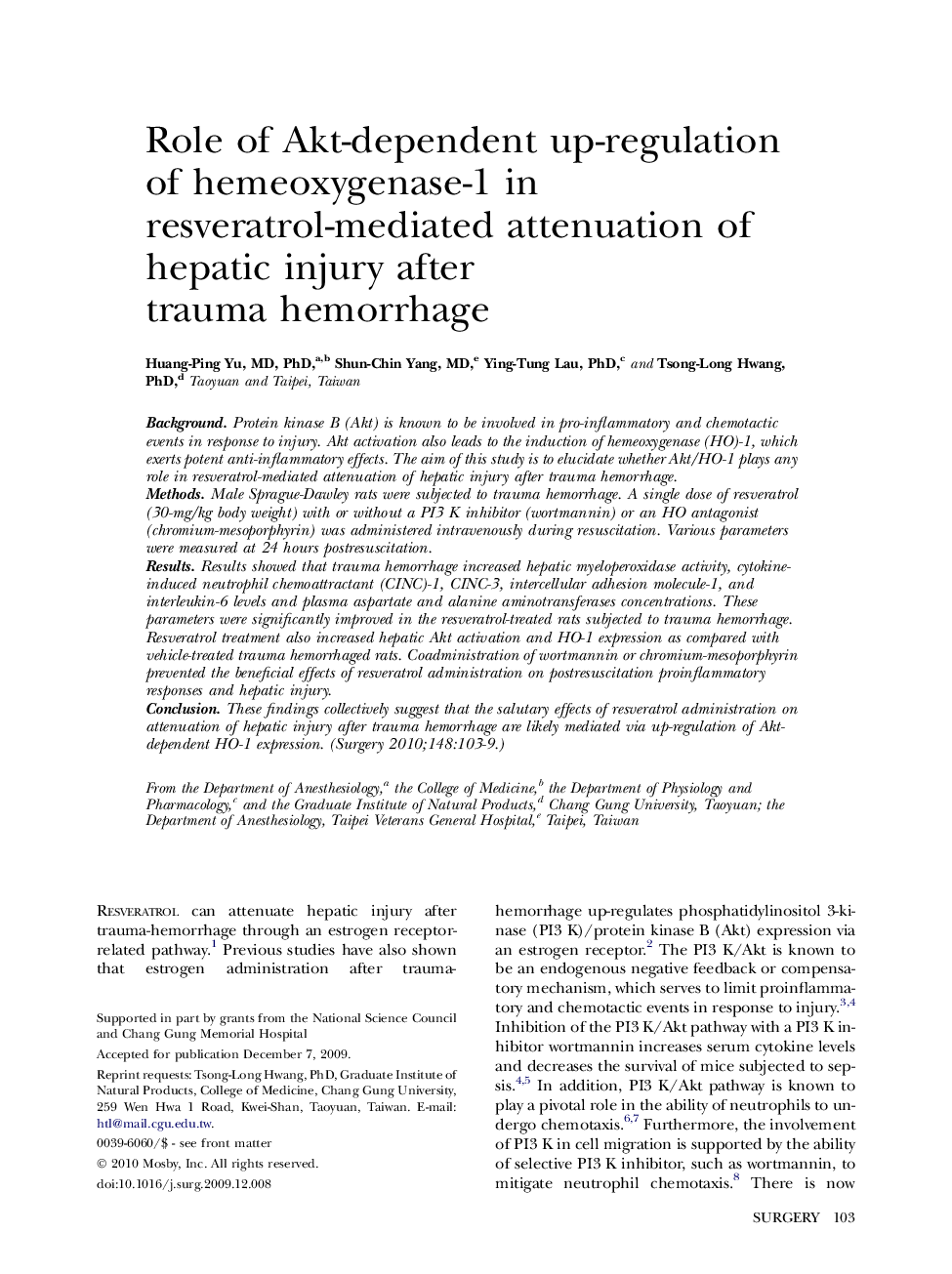| Article ID | Journal | Published Year | Pages | File Type |
|---|---|---|---|---|
| 4308675 | Surgery | 2010 | 7 Pages |
BackgroundProtein kinase B (Akt) is known to be involved in pro-inflammatory and chemotactic events in response to injury. Akt activation also leads to the induction of hemeoxygenase (HO)-1, which exerts potent anti-inflammatory effects. The aim of this study is to elucidate whether Akt/HO-1 plays any role in resveratrol-mediated attenuation of hepatic injury after trauma hemorrhage.MethodsMale Sprague-Dawley rats were subjected to trauma hemorrhage. A single dose of resveratrol (30-mg/kg body weight) with or without a PI3 K inhibitor (wortmannin) or an HO antagonist (chromium-mesoporphyrin) was administered intravenously during resuscitation. Various parameters were measured at 24 hours postresuscitation.ResultsResults showed that trauma hemorrhage increased hepatic myeloperoxidase activity, cytokine-induced neutrophil chemoattractant (CINC)-1, CINC-3, intercellular adhesion molecule-1, and interleukin-6 levels and plasma aspartate and alanine aminotransferases concentrations. These parameters were significantly improved in the resveratrol-treated rats subjected to trauma hemorrhage. Resveratrol treatment also increased hepatic Akt activation and HO-1 expression as compared with vehicle-treated trauma hemorrhaged rats. Coadministration of wortmannin or chromium-mesoporphyrin prevented the beneficial effects of resveratrol administration on postresuscitation proinflammatory responses and hepatic injury.ConclusionThese findings collectively suggest that the salutary effects of resveratrol administration on attenuation of hepatic injury after trauma hemorrhage are likely mediated via up-regulation of Akt-dependent HO-1 expression.
